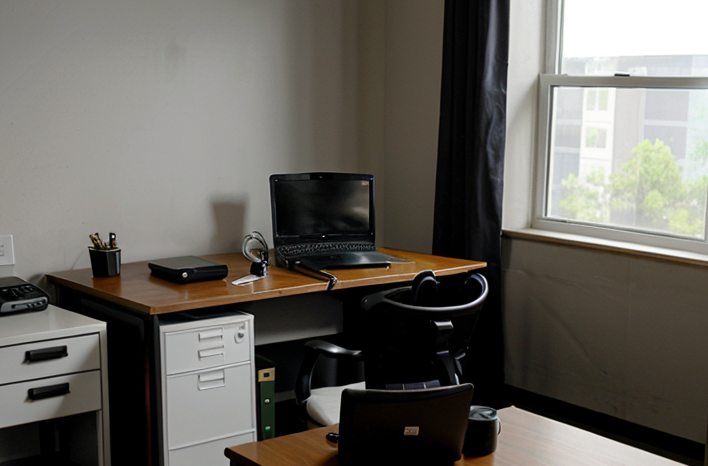Are HR Jobs Stressful?
HR professionals have a world of tasks. They wear many hats. From recruitment to training, their work never stops. One HR manager, Sarah, juggled eight job offers in one week. Each candidate had unique needs. Balancing expectations made Sarah anxious.
Are You a Good Fit for This Job?
Conflicts arise daily. Sometimes conflicts arise between employees and management. For instance, a disagreement about a work project can escalate. This requires quick resolutions. Moreover, HR must solve disputes while maintaining trust. Yet Sarah, like many, still feels underprepared for crises.
- Recruitment: Finding the right fit can be tough.
- Training: New skills need teaching and guidance.
- Employee relations: Handling disputes require skill.
- Policy development: Keep company rules updated.
Every day, HR faces differences. They must navigate various personalities. Consider Tom, an HR assistant who handles onboarding. He once met a new employee who was nervous. Instead of rushing, he took time to listen. Such moments can change everything. But time is often scarce.
However, some responsibilities are more complex than others. Compliance with labor laws and regulations is crucial. One simple mistake can result in fines. Sarah recalls a time her team miscalculated overtime pay. It led to confusion among workers. This example illustrates the constant challenges they face.
It’s important to understand the overall satisfaction of professionals in this field. Exploring the well-being of HR managers can provide insights into their experiences and challenges. For a deeper look into this topic, check out the happiness of HR managers.
There are many roles in HR. Specialist, generalist, and consultant are all key positions. Each demands unique skills. One moment you’re resolving a payroll issue. The next, you’re at a strategic meeting. This shift can confuse anyone. With expectations high, HR feels the weight.
Indeed, these hurdles define the HR journey. Balancing urgent tasks with long-term strategies is not simple. Employees look to HR for guidance. There’s a need for clear communication and action. Yet, it takes courage to speak up.
The Emotional Toll of HR Work (Case Study)

HR professionals often face tough situations. They manage conflicts daily. One HR specialist shared, “It’s like walking a tightrope.” The balance between employee needs and company goals is hard. This role requires quick decision-making. Every action affects lives.
In cases of terminations, the emotional burden is heavy. The fear of being the “bad guy” looms large. A seasoned HR manager said, “We sometimes feel like we are on stage.” Emotions run high during these moments. Not just for employees, but for HR, too.
Managing workplace change adds another layer. Employees often resist this change. An HR professional commented, “Change can create chaos.” Conflicts arise from misunderstandings. The pressure to resolve these issues can be overwhelming.
- Conflicting Loyalties: HR must support employees while protecting the company.
- High Expectations: Everyone looks to HR for solutions, which adds stress.
- Emotional Drain: Each tough conversation leaves a mark on well-being.
Research shows these stressors impact health. Many HR professionals experience anxiety. A notable HR expert mentioned, “Our mental health suffers in silence.” Still, they press on out of duty. They feel responsible for the workplace climate.
HR roles have unique emotional labor. This labor is not often recognized. It’s easy to overlook the toll it takes. Falling through the cracks of company support does not make it easier.
It’s vital to acknowledge these challenges. Empathy in the workplace cannot be underestimated. Stronger support systems can help alleviate the load. This starts from leadership and trickles down.
There exists a need for change. Many HR professionals desire better mental health resources. They want to be heard and seen. They want their own well-being to matter.
Work From Anywhere Opportunities:
Workload: The Silent Stressor
HR professionals often face a heavy workload. This workload increases during busy times like recruitment seasons. Companies need to fill positions quickly. This urgency creates tension and stress. According to a survey, 70% of HR workers report feeling overwhelmed. They must manage hiring, training, and employee relations.
During recruitment, they might work 50-hour weeks. Interviews stack up, documents pile high, and emails flood in. Deadlines loom large. Stress can cause burnout. Experts recommend regular breaks. These pauses help maintain focus and energy.
- Setting strict working hours helps.
- Using task lists can organize the chaos.
- Collaborating with teams lightens the load.
Experts note that seasonal spikes in work impact HR jobs significantly. This work presses on them through the holidays and summer. Many HR staff report anxiety at those times. They feel as if they constantly juggle tasks without relief.
Besides recruitment, managing conflicts is another challenge. HR often mediate disputes between staff. Those situations can be draining. Each case can raise emotions. Stressful interactions have lasting effects on workers. In a study, 60% of HR personnel felt they lacked support.
Support from management is crucial. It can lessen the burden HR workers carry. Some organizations encourage open communication. Others invest in stress management programs. These programs empower HR teams with coping strategies. They create a healthier work environment.
Workload management is key. Normalizing discussions about stress is vital. Interventions should focus on mental health. Employees must feel safe expressing feelings. Implementing wellness initiatives can improve morale.
Understanding workload impacts productivity. The goal is to create balance. HR workers should not bear the weight of work alone. There are tangible steps to help HR teams cope. Management’s role is significant in alleviating their challenges.
In future conversations about HR, remember this: Work should be manageable. Finding balance is essential for long-term success.
Striking the Balance: Wellness Initiatives in HR

Human resources roles face tough challenges. Stress can creep into everyday tasks. Wellness initiatives offer pathways to balance. These programs support HR professionals.
- Mindfulness Programs: Some HR teams introduced daily mindfulness sessions. One manager said it transformed their work. It reduced anxiety and improved focus. Employees felt more engaged.
- Flexible Work Schedules: A company adopted flexible hours. HR staff could choose their start and end time. This led to happier, less stressed workers. Employees praised the ability to balance life and work.
- Team Retreats: One organization planned a team retreat. They went hiking and participated in workshops. This brought teams closer and lessened stress. HR felt supported and valued.
- Health Challenges: A friendly competition boosted wellness. Staff participated in step challenges. It created bonds and improved fitness. Teams cheered for each other.
- Regular Check-Ins: Weekly one-on-one meetings helped a lot. HR leaders checked in with their teams. They discussed challenges and offered support. Employees felt heard.
These diverse approaches work. A HR team shared how their wellness program expanded from one idea. They created a culture of support. Personal stories inspire others. Success stories encourage other teams. Wellness programs grow stronger through sharing.
Managing stress is a team effort. Each initiative helps build resilience. HR professionals can thrive together.
The Future of HR: Navigating Stressful Waters
HR will change a lot in the coming years. Technology will make work easier. Software can handle many tasks. This means HR can focus on people, not paperwork.
Utilizing AI tools can reduce daily stress. Imagine an assistant that schedules interviews. It saves time so HR can think about how to help employees better.
- Automation of tasks.
- More remote work options.
- Flexibility in roles.
- Employee wellness programs.
As businesses embrace these changes, HR will feel the difference. Job satisfaction will rise when workers feel supported. Stress should decline with fewer burdens. Better mental health often leads to a happier workplace. Healthy employees perform better.
Companies may rethink HR structures. Teams could become smaller, with specialists for specific needs. This leads to greater efficiency in addressing challenges. Nobody should feel overwhelmed.
In addition, training will evolve too. Workshops may focus on stress management. Employees will learn how to cope with challenges. This knowledge can empower HR and others.
Communication will also transform. Real-time feedback tools can enhance understanding. Creating a culture of open dialogue may strengthen relationships. People will feel heard and valued.
HR professionals need proper support in the future. Having a buddy system can ease feelings of isolation. Pairing experienced and new HR staff creates learning opportunities. This should be good for both parties.
Technology’s role is pivotal in this evolving landscape. Efficient systems ensure minimal strain on HR professionals. Imagine world where HR staff actually enjoy their roles! It’s possible.
Future HR will focus on balance. Wellness initiatives will take center stage. HR will advocate for their mental health. Employees can expect more understanding from management.







